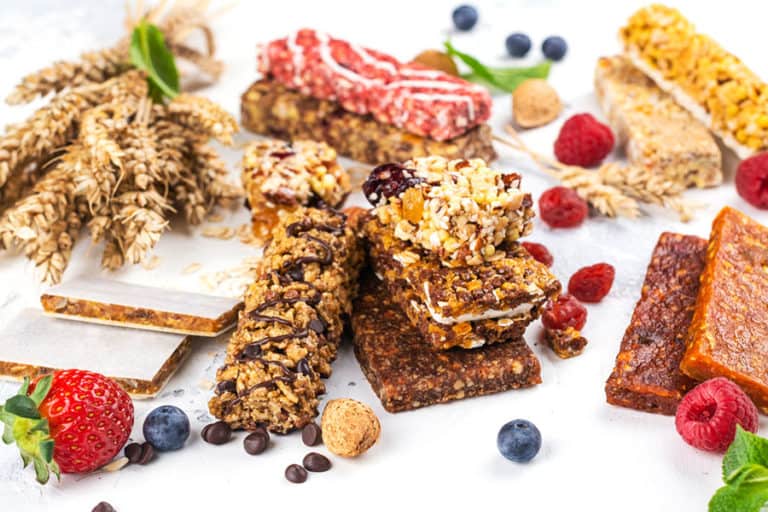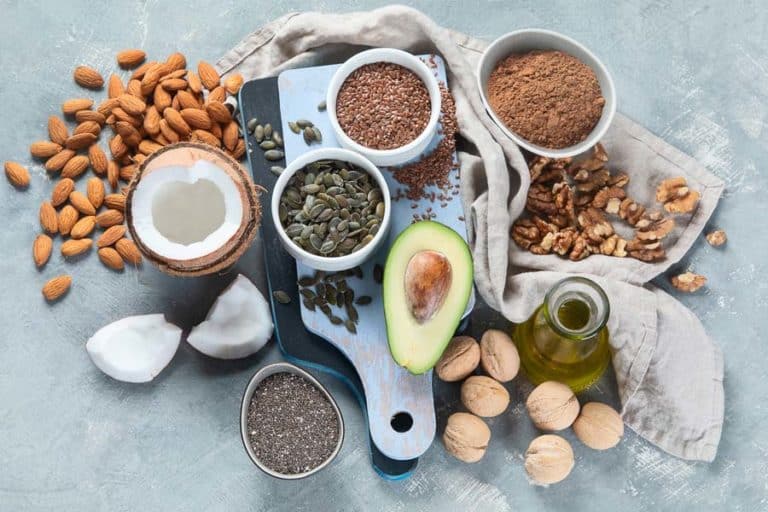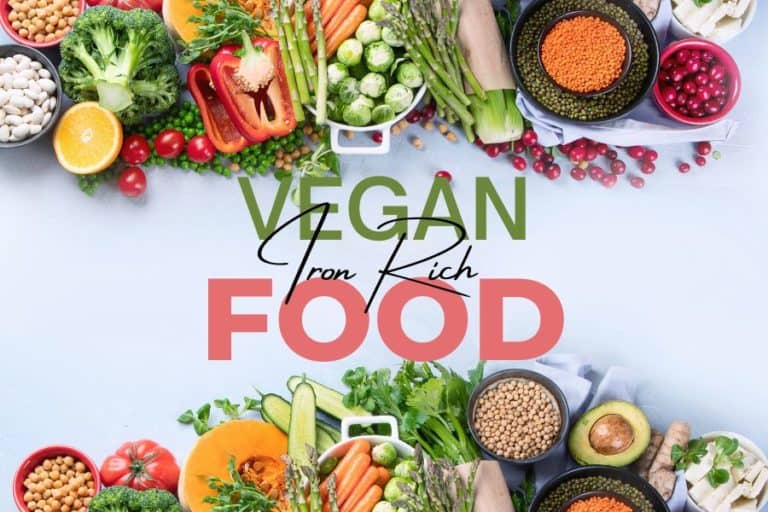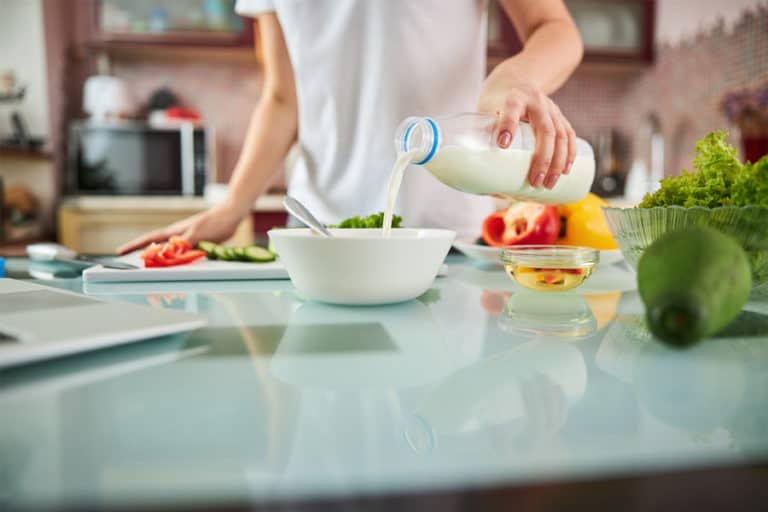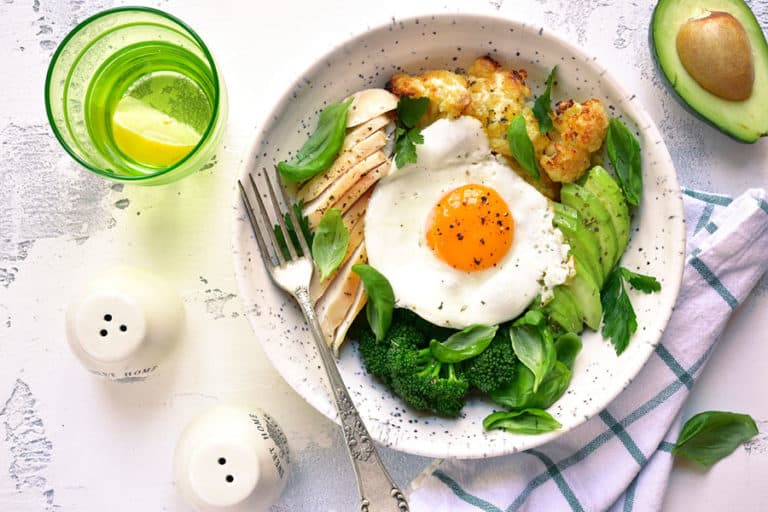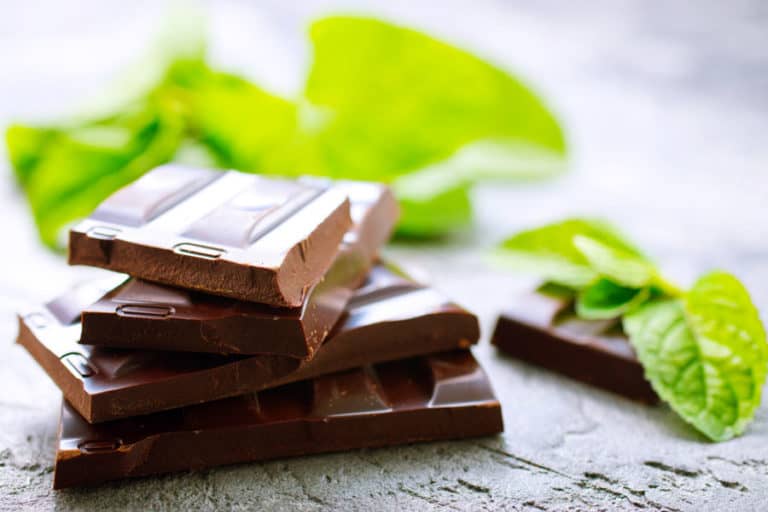Vegan Vs. Vegetarian – Know The Difference
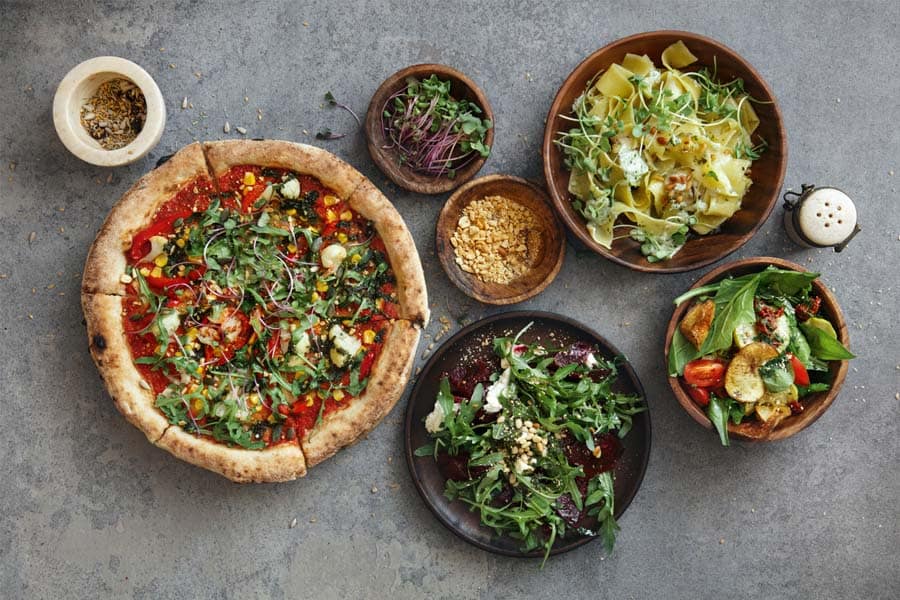
Vegan Diet | Vegetarian diet | Types of Vegans | vegan vs. vegetarian | Similarities | Nutrition | Reasons to go vegan/vegetarian | Which is healthier | FAQs
A vegan diet is often confused with a vegetarian diet. Although both are plant-based diets, there are some key differences between them. Knowing the difference between the two diets is essential, as each has different health implications.
Knowing the difference between the two diets is essential, as they each have different health implications.
What is a vegan diet?
A vegan diet is a dietary practice typically followed by those who practice veganism. It is a lifestyle choice that goes beyond food.
A vegan diet is a type of vegetarian diet that excludes all animal products, including eggs and dairy. It also excludes animal-derived ingredients such as honey, gelatin, carmine, etc.
Veganism is a more restrictive form of vegetarianism.
Vegan people avoid using animal-derived products, such as animal protein, leather, wool, silk, and cosmetics. They also shun products like medicines, cosmetics, and so on that have been tested on animals.
What is a vegetarian diet?
According to the Vegetarian Society, [1]Vegetarian Society: Vegetarians don’t eat fish, meat, or chicken a vegetarian diet is defined as one that excludes meat, fish, and all forms of poultry.
There are different types of vegetarian diets depending on what is included and excluded from the diet.
1. Lacto-vegetarian
Lacto-vegetarians are vegetarians who do not eat meat, fish, or eggs but consume dairy products. They eat dairy products like milk, cheese, yogurt, etc.
2. Ovo vegetarian
Ovo-vegetarians eat eggs but do not consume meat, fish, or dairy products. This diet is commonly followed by people who cannot tolerate lactose or have ethical concerns about consuming dairy products.
3. Lacto-Ovo Vegetarian
Lacto-Ovo vegetarians are vegetarians who do not eat meat but consume both dairy products and eggs. This version of vegetarianism allows its followers to reap the nutritional benefits of dairy products and eggs.
4. Pesco vegetarian
Pescatarians are vegetarians who do not eat meat but do consume fish and other seafood. This diet is followed by people who want to enjoy the health benefits of a vegetarian diet but cannot give up fish.
What are the 4 types of vegans?
There are several types of vegans, but the four most commonly recognized types include:
- Dietary Vegans: These individuals follow a vegan diet and avoid consuming all animal products such as meat, dairy, eggs, and honey.
- Ethical Vegans: These individuals follow a vegan lifestyle for ethical reasons and avoid using or supporting products that involve animal exploitation, such as leather, fur, and cosmetics tested on animals.
- Environmental Vegans: These individuals follow a vegan lifestyle primarily for environmental reasons, as animal agriculture is one of the leading causes of greenhouse gas emissions and deforestation.
- Health Vegans: These individuals follow a vegan diet for health reasons, such as reducing the risk of heart disease, diabetes, and certain types of cancer. They may still use or consume products that involve animal exploitation.
An overview of vegan vs vegetarian diets
Here is a table that summarizes the key differences between vegan and vegetarian diets:
| Food Items | Vegan diet | Vegetarian diet |
| Meat and Poultry | No | No |
| Seafood | No | Pesco vegetarians eat seafood |
| Eggs | No | Ovo vegetarians eat eggs |
| Dairy | No | Lacto, and Lacto-Ovo vegetarians consume dairy |
| Fruits | Yes | Yes |
| Vegetables | Yes | Yes |
| Legumes | Yes | Yes |
| Processed food | Yes | Yes |
| Oils | Avoids fish oil | Avoids fish oil unless they are pesco vegetarian |
| Honey | No | Yes |
| Alcohol | Only vegan-based alcohols | Yes |
Similarities between vegan and vegetarian diets
Is vegan and vegetarian the same thing? Not really. While there are a lot of similarities between vegan and vegetarian diets, they are not exactly the same.
Vegetarian and vegan diets primarily emphasize eating plant-based foods to protect animals and the environment. However, their beliefs may differ on other issues, such as the use of animal-derived products.
Some similarities between vegan and vegetarian diets include:
- Avoidance of meat, poultry, fish, and other seafood.
- Eating mostly plant-based foods such as vegetables, fruits, whole grains, legumes, nuts, and seeds.
- Both these diets allow plant-based meat and dairy.
Nutritional considerations for vegan and vegetarian diets
According to a study, [2]PubMed: Health effects of vegan diets a vegan or vegetarian diet can be healthy, but a poorly planned diet can lead to nutrient deficiencies.
Protein
Protein is essential for the growth and repair of tissues in the body. It is also necessary for the production of enzymes and hormones.
It takes careful planning to ensure you are getting enough proteins from a vegan diet or a vegetarian diet.
Good sources of protein for vegans and vegetarians include beans, lentils, tofu, tempeh, nuts, and seeds.
Iron
Iron is necessary for the production of hemoglobin, which carries oxygen in the blood. While meat eaters get most of their iron from animal sources, vegans and vegetarians miss out on this important nutrient if they don’t carefully plan their diets.
Thus, vegans and vegetarians may be at risk for anemia. If you are on a plant-based diet, make sure to include plenty of vegan iron-rich foods in your diet and may need to supplement with iron pills or other iron-rich foods.
Good sources of iron for vegans and vegetarians include dark leafy greens, beans, legumes, lentils, fortified cereals, and tofu.
Vitamin B12
Vitamin B12 is necessary to form red blood cells in the body. It is also required for the proper functioning of the nervous system. It is found only in animal products, so vegans and vegetarians should supplement with vitamin B12 pills or other B12-rich foods.
Good sources of vitamin B12 on vegan diets include nutritional yeast, fortified plant-based milk, and fortified cereals.
Good sources of vitamin B12 for vegetarians include eggs and dairy products, provided they are lacto-ovo vegetarians.
Calcium
Calcium is necessary for strong bones and teeth. It is also important for muscle contraction and nerve function. When you are on a vegetarian or vegan diet, you are at risk for osteoporosis if you do not consume enough calcium-rich foods or take supplements.
While vegetarians can get enough calcium from dairy products, vegans need to be more careful about their intake of calcium.
Good sources of calcium for vegans and vegetarians include dark leafy greens, tofu, tahini, almonds, and fortified plant-based milk.
Reasons why people go vegan or vegetarian
There are many reasons why people choose to go vegan or vegetarian. Here is a list of a few potential reasons:
1. Animal welfare
Both vegans and vegetarians believe that killing animals for food is wrong when other options are available. Many people also believe that animals raised for food are treated inhumanely.
2. Health concerns
Some people choose a vegan or vegetarian diet for health reasons. Studies [3]National Library of Medicine: Nutritional Update for Physicians: Plant-Based Diets have shown that plant-based diets can lower the risk of heart disease, obesity, and type 2 diabetes. [4]National Library of Medicine: A plant-based diet for the prevention and treatment of type 2 diabetes
3. Environmental concerns
Some people choose veganism or vegetarianism to help reduce their carbon footprint. They believe that raising animals for food is a leading cause of pollution, deforestation, and global warming.
4. Religious or cultural beliefs
For some people, veganism or vegetarianism is a religious or cultural practice. Hinduism, Buddhism, and Jainism all advocate for ahimsa, which is the principle of nonviolence toward all beings.
Which is healthier – a vegan or vegetarian diet?
According to a study from the Academy of Nutrition and Dietetics, [5]PubMed: Position of the Academy of Nutrition and Dietetics: Vegetarian Diets well-planned vegan or vegetarian diets can both be healthy for all stages of the life cycle, including childhood and pregnancy.
However, let’s take a closer look at the health benefits of each one.
Gut health
Gastrointestinal tract has a wide impact on our overall health and well-being. A healthy diet is one of the most important factors that contribute to gut health.
Identifying which diet is better for gut health is difficult because it depends on several individual factors.
According to a systematic review published in the Gut Microbes, [6]National Library of Medicine: The effects of dairy and dairy derivatives on the gut microbiota: a systematic literature review vegetarians that consume dairy products primarily benefit from the probiotic properties of milk, yogurt, and kefir – food items are shown to improve gut health significantly.
However, a vegetarian diet is not beneficial to gut health in adults who suffer from lactose intolerance. A vegan diet is better suited to the gut health of lactose intolerants.
Weight loss
A vegan diet can help with weight loss compared to a vegetarian diet since it eliminates dairy and eggs, which are higher in calories.
A study [7]PubMed: Comparative effectiveness of plant-based diets for weight loss: a randomized controlled trial of five different diets on the comparative effectiveness of plant-based diets for weight loss found that vegan participants lost more weight than participants following different types of vegetarian diets.
Bone and joint health
A study [8]PubMed: Plant-based diets and bone health: sorting through the evidence suggests that a well-planned, long-term plant-based diet lowers the risk of developing osteoarthritis and can help prevent the progression of the disease.
However, a study published in BMC Medicine [9]BMC Medicine: Vegetarian and vegan diets and risks of total and site-specific fractures: results from the prospective EPIC-Oxford study found that vegan diets are associated with a higher risk of hip fractures, particularly in older women.
While vegetarians get some collagen from eggs and dairy products, vegans lack collagen-rich food items in their diet, which can lead to bone and joint problems. Vegans may need to go on vegan collagen supplements to meet their collagen requirement.
Conclusion
Vegans and vegetarians have a lot of things in common such as avoiding meat and fish. However, vegans go beyond this by avoiding all animal byproducts such as dairy, eggs, honey, silk, wool, and leather.
Both vegan and vegetarian diet have their own health benefits and concerns. Therefore, before starting either of these diets, comparing and contrasting them is essential to determine which is best for you.
Consult your personal dietitian to help you plan a well-balanced vegan or vegetarian diet, depending on your needs and health goals.
FAQs
Here are a few frequently asked questions regarding veganism and vegetarianism:
What is vegan vs vegetarian vs pescatarian?
Veganism involves avoiding all animal products, including meat, dairy, eggs, and honey. Vegetarianism generally involves avoiding meat but may include consumption of eggs and dairy products. Pescatarians consume fish and seafood but avoid meat.
Can vegans eat eggs?
Vegans do not eat eggs or any other animal-derived products. However, some vegans may choose to consume vegan egg alternatives made from plant-based ingredients.
Do vegans eat meat?
No, vegans do not eat meat or any other animal-derived products. Consuming any kind of animal-derived meat goes against the core ethics of veganism.
Is vegetarian healthier?
A well-planned vegetarian diet can be healthy, as it can provide all the necessary nutrients the body needs. However, it is important to ensure that the diet includes a variety of foods to meet nutrient requirements.
Do vegans eat dairy products?
No, vegans do not eat any dairy products, including milk, cheese, and yogurt. Instead, they opt for plant-based alternatives such as almond milk, tofu, and nut-based cheese.
References
| ↑1 | Vegetarian Society: Vegetarians don’t eat fish, meat, or chicken |
|---|---|
| ↑2 | PubMed: Health effects of vegan diets |
| ↑3 | National Library of Medicine: Nutritional Update for Physicians: Plant-Based Diets |
| ↑4 | National Library of Medicine: A plant-based diet for the prevention and treatment of type 2 diabetes |
| ↑5 | PubMed: Position of the Academy of Nutrition and Dietetics: Vegetarian Diets |
| ↑6 | National Library of Medicine: The effects of dairy and dairy derivatives on the gut microbiota: a systematic literature review |
| ↑7 | PubMed: Comparative effectiveness of plant-based diets for weight loss: a randomized controlled trial of five different diets |
| ↑8 | PubMed: Plant-based diets and bone health: sorting through the evidence |
| ↑9 | BMC Medicine: Vegetarian and vegan diets and risks of total and site-specific fractures: results from the prospective EPIC-Oxford study |


